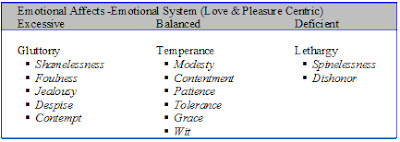One can argue that laws and regulations are enough to induce
ethical and moral decision making. But just like having a police force doesn't
alleviate crime. Having business regulations do not ensure that businesses will
conduct their affairs ethically. Regulatory drivers alone are not sufficient to
safeguard public interest from the ill affect of greed and unethical corporate behavior. In the absence of a universal guiding
mechanism for organizational ethical decision-making, corporations have no reservations
about flooding the markets with contaminated food, tainted merchandise, or
sub-prime mortgages.
Islamic traditional thought and philosophy has always been a
proponent of financial profits with restrain on wasteful use of resources; of
outward ambition with introspect and inner reflection; of economic growth with
respect of laws of the land, and the laws of nature.
So can Islam offer a universal ethical Decision Support System?
The answer is, absolutely!
So can Islam offer a universal ethical Decision Support System?
The answer is, absolutely!
Islam prescribes
certain specific guidelines for the governance of business based on the
legality of transactions, as per Islamic jurisprudence (fiqh)
of lawful (halal) and unlawful (haram) activities. It identifies ethically
desirable forms of business, specifies the undesirable modes of transactions
and enumerates the general moral and ethical rules of business conduct
(Mohammed, 2007).
The essence of such a system will be based not on the short
term goal of serving the self interest of selected individuals but on the long
term goal of service to humanity with the ability of the system to induce a
God-Conscious mindset for upholding universal ethical principles. God-consciousness therefore will play a central
role in the calibration of strategic decision making processes.
A Code of Ethics based on this Islamic Decision Support System (IDSS) would therefore need to have the following injunctions:
Engagements must be lawful: The IDSS code of ethics must mandate lawfulness ahead of goodness. It also forbids the restriction of consumption of the lawful without a valid reason.
Human life must be safeguarded: The IDSS code of ethics must prohibit the loss of life at any cost from all forms of destruction, providing the framework for managing all human relationships (labor, workforce, vendor, customers, community at large, etc.)
Human intellect must be protected and nurtured: The IDSS code of ethics must prohibit exploitation and forced buyouts safeguarding intellectual capital (copyright, trademarks, patents, intellectual property, etc.)
Decisions must factor impact to future generations: The IDSS code of ethics must prohibit extraction/production/disposal that causes undue or excessive harm to resources. In situations where some harm is inevitable, a careful weighing of relative harms and benefits should be made. Furthermore, a party that may be harmed must be compensated, based on the cardinal rule in Islamic Law that harm must be removed or recompensed. (Badawi, date unknown)
Wealth must be protected and safeguarded: The IDSS code of ethics must prohibit excessive leveraging of assets. It encourages ethical competition and spending in moderation to encourage a free enterprise system and keep economic engines churning.
When a corporate decision support system conforms to this
type of code of ethics, the business outlook will transform from stakeholder-consciousness to God-Consciousness. The strategy no longer will be focused
exclusively on financial profitability, but rather on equity and fairness. As the organizational psyche, thoughts, and
behaviors are aligned with a God-centric sense of purpose, the organizational decision-making will take on a more long-term holistic perspective. With this type of purposeful thinking we start
to look at the cause and affect of our intentions and actions from a
holistic perspective. This kind of adjustment
allows its practitioners a higher form of wisdom; a form of wisdom where they take on the responsibility of exhibiting trusteeship, accountability and
transparency while demonstrating commitment, equity and excellence.
The
concepts of trusteeship, accountability, transparency are universal principles and
are used to describe a God-Conscious individual in the Quran in many places. The Quran also mandates all God-Conscious individuals to uphold
their commitments, treat all with equality and demonstrate excellence in all
endeavors.
So what would core attributes of an IDSS be?
IDSS Attributes
|
Relevance
|
Trusteeship (Amanah): the understanding that resources are a trust from God and we
bear responsibility in our utilization of them.
|
Efficient and effective
deployment and utilization of organizational and natural resources to
minimize wastefulness.
|
Accountability (Hesab): the understanding that we are
all accountable for our actions to God.
|
Adherence to laws,
regulations, standards, and best practices pertaining to assigned duties and
tasks.
|
Transparency (Gharar): the understanding that there
are no actions or intensions, in private or in public, that are hidden from
God.
|
Honest disclosure of
information to public or private entities with respect to fiduciary and
social responsibilities in a comprehensive, accessible, and timely manner.
|
Commitment (Aqd): the understanding that honoring
of all obligations is a divine obligation.
|
Upholding and fulfilling
all contractual agreements with all stakeholders; employees, unions,
investors, suppliers, customers, partners etc.
|
Excellence (Ihsan): the understanding that God has
ordained excellence in everything. (Badawi, date unknown)
|
Commitment to quality
management frameworks with continuous improvement cycles effecting all
aspects of the organization; health and safety, environmental protection,
security, customer satisfaction, etc.
|
Equity (Adl): the understanding that our inner
intentions and feelings should be consistent with our declared words and
actions.
|
Fairness in maintaining a
free enterprise system of trade and commerce without insider trading,
political lobbying, revolving door hiring policies, excessive executives compensation etc.
|
Enabling IDSS philosophy is
therefore a dynamic balancing act; aligning our thoughts and intentions with
our deeds and actions in such a way that we retain God-Consciousness at all
times in decision making. That maintenance of balance, in everything we do
inwardly or outwardly, is not a mere recommendation but a divine order as the
Quran states:
“And the heaven He raised and imposed the balance.
That you not transgress within the balance. And establish weight in justice and
do not make deficient the balance.” (Quran 55:7-9)





